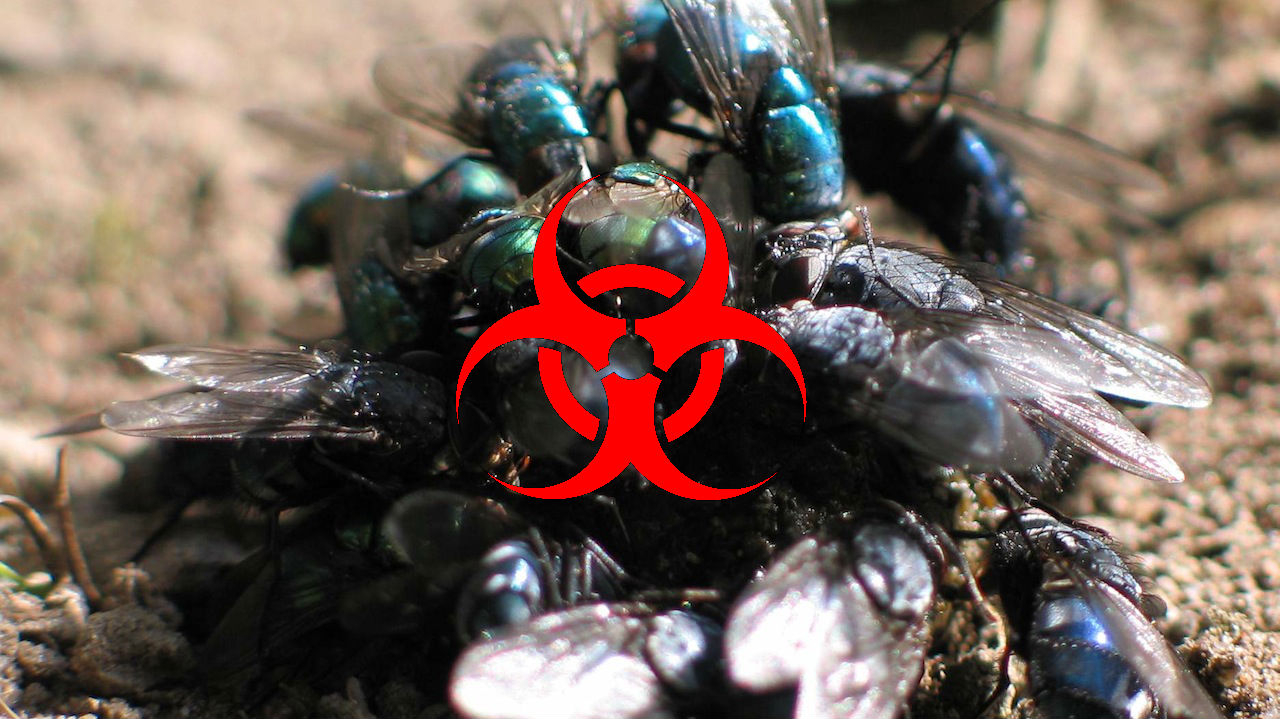The most frustrating thing about filthy, disgusting bugs is their ability to quickly reproduce. If you happen to suffer from, say, a roach infestation, you know that all you can really do is beat the little guys back. No matter how close you come to completely eradicating them, there’s always a handful left, biding their time and plotting another full-scale takeover.
Scientists at the Agricultural Research Service’s Center for Medical, Agricultural, and Veterinary Entomology may have found a more permanent solution, in the form of a newly discovered “biological control agent” called salivary gland hypertrophy virus (SGHV)–which may be able to take away the bugs’ ability to reproduce. Once infected, male house flies do not mate and females do not produce eggs, and each time an infected fly eats, it spreads “massive numbers of virus particles” onto the food supply.
You see where this is going. Now, we just have to hope that A) scientists discover or develop a roach-effective strain, and B) SGHV doesn’t backfire and lead to a race of mutant resistant insects that reproduce even more frequently than before, outgrowing their usual habitats and slowly but surely creeping into the dark, hidden nooks and crannies of every single house and apartment on the planet. Fingers crossed!


